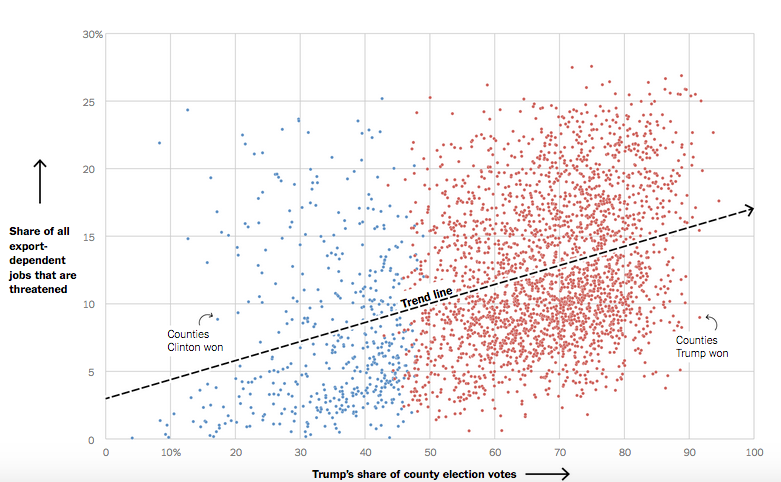President Trump may have been overstating things when he argued from a United Nations podium last week that the Chinese were going after American farm products to hurt his political base because “they do not want me or us to win.”
But China clearly would like to send a signal to rural American voters.
Mapping the counties that voted for Mr. Trump in 2016 and those affected by China’s tariffs shows the extent to which Trump voters’ jobs rely on the products being targeted. Beijing hopes it can convince those voters — and their elected representatives — that the president’s trade war could hurt them.
Over the summer, the Chinese took aim at Mitch McConnell, the Senate majority leader. In his home state, Kentucky, 18,000 jobs depend on whiskey. So they put a 25 percent tariff on it. Representative Paul D. Ryan, the House speaker, is from Wisconsin, a leading producer of cranberries. So cranberries were added to the list, for good measure. And China went after pork and soybeans, two of the leading farm products in Iowa, home of Charles E. Grassley, a powerful member of the Senate Agriculture Committee.
“Forty percent of our exports are now under punitive tariffs,” said Jim Monroe, a spokesman for the National Pork Producers Council.




